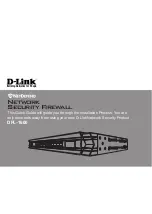
12-28
Catalyst 3750-E and 3560-E Switch Software Configuration Guide
OL-9775-08
Chapter 12 Configuring Interface Characteristics
Configuring Ethernet Interfaces
For information about the output of the
show power inline
user EXEC command, see the command
reference for this release. For more information about PoE-related commands, see the
Power over Ethernet Switch Ports” section on page 49-13
. For information about configuring voice
VLAN, see
Chapter 15, “Configuring Voice VLAN.”
Budgeting Power for Devices Connected to a PoE Port
When Cisco powered devices are connected to PoE ports, the switch uses Cisco Discovery Protocol
(CDP) to determine the
CDP-specific
power consumption of the devices, and the switch adjusts the
power budget accordingly. This does not apply to IEEE third-party powered devices. For these devices,
when the switch grants a power request, the switch adjusts the power budget according to the
powered-device IEEE classification. If the powered device is a class 0 (class status unknown) or a
class 3, the switch budgets 15,400 mW for the device, regardless of the CDP-specific amount of power
needed. If the powered device reports a higher class than its CDP-specific consumption or does not
support power classification (defaults to class 0), the switch can power fewer devices because it uses the
IEEE class information to track the global power budget.
By using the
power inline consumption
wattage
interface configuration command or the
power inline
consumption default
wattage
global configuration command, you can override the default power
requirement specified by the IEEE classification. The difference between what is mandated by the IEEE
classification and what is actually needed by the device is reclaimed into the global power budget for use
by additional devices. You can then extend the switch power budget and use it more effectively.
Step 3
power inline
{
auto
[
max
max-wattage
] |
neve
r |
static
[
max
max-wattage
]}
Configure the PoE mode on the port. The keywords have these meanings:
•
auto
—Enable powered-device detection. If enough power is
available, automatically allocate power to the PoE port after device
detection. This is the default setting.
•
(Optional)
max
max-wattage—
Limit the power allowed on the port.
The range is 4000 to 15400 mW. If no value is specified, the
maximum is allowed.
•
never
—Disable device detection, and disable power to the port.
Note
If a port has a Cisco powered device connected to it, do not use
the
power inline never
command to configure the port. A false
link-up can occur, placing the port into the error-disabled state.
•
static
—Enable powered-device detection. Pre-allocate (reserve)
power for a port before the switch discovers the powered device. The
switch reserves power for this port even when no device is connected
and guarantees that power will be provided upon device detection.
The switch allocates power to a port configured in static mode before it
allocates power to a port configured in auto mode.
Step 4
end
Return to privileged EXEC mode.
Step 5
show power inline
[i
nterface-id |
module
switch-number
]
Display PoE status for a switch or a switch stack, for the specified
interface, or for a specified stack member.
The
module
switch-number
keywords are supported only on
Catalyst 3750-E switches.
Step 6
copy running-config startup-config
(Optional) Save your entries in the configuration file.
Command
Purpose
Summary of Contents for Catalyst 3750-E Series
Page 48: ...Contents xlviii Catalyst 3750 E and 3560 E Switch Software Configuration Guide OL 9775 08 ...
Page 52: ...lii Catalyst 3750 E and 3560 E Switch Software Configuration Guide OL 9775 08 Preface ...
Page 1414: ...Index IN 58 Catalyst 3750 E and 3560 E Switch Software Configuration Guide OL 9775 08 ...
















































